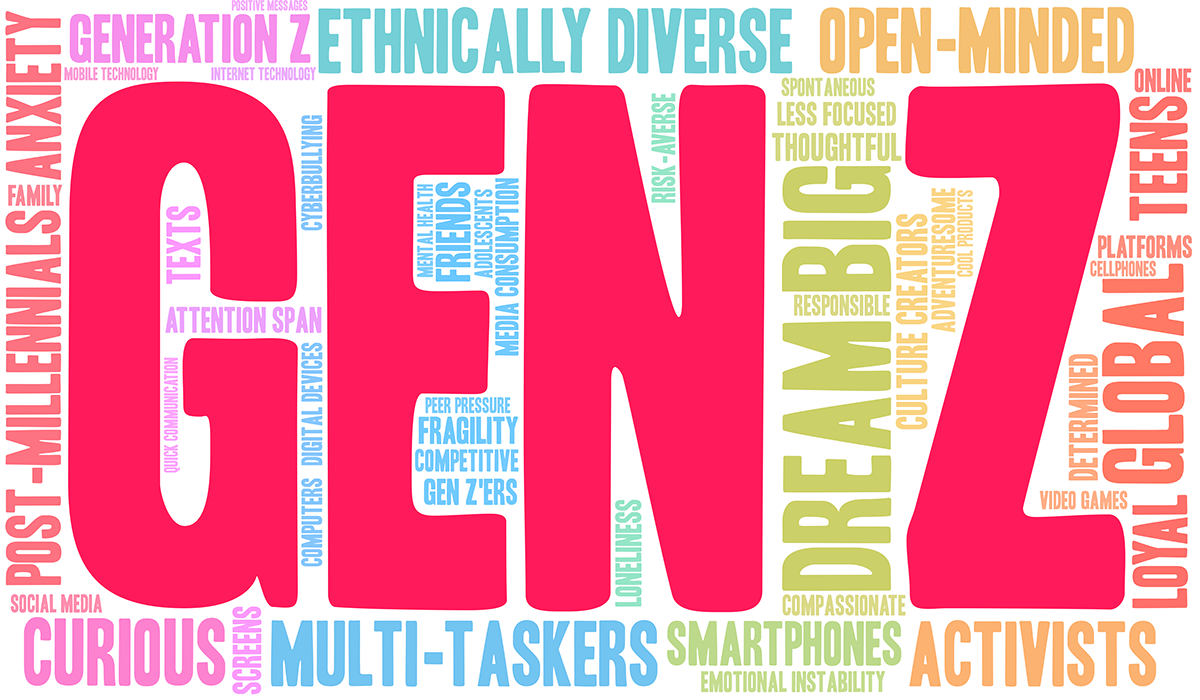Recruiting Generation Z
© arloo / Adobe Stock
It seems only yesterday that everyone was complaining about millennials, while simultaneously trying to understand how to recruit them. Now it’s time for the next generation to start entering the workforce and shaking up the status quo. Generation Z, born from about 1996 to 2010, is just coming of age, graduating from post-secondary education programs and entering the first years of their professional lives.
What are these young adults looking for from employers? What benefits and perks matter the most to them? Not every gen-z-er is the same, but we can make some generalizations that might help you snag some of these tech-savvy, socially conscious young’uns.
If you (or your business) are not online, you don’t exist!
This generation was born into technology. Many have had cell phones since they were kids and grew up using social media fluently. The first thing an 18-to-24-year-old will do when they hear your organization’s name is Google it. They’ll read every review (both bad and good), look up all your business’s social media accounts, and even "research” (read: social media stalk) some employees.
This is why it is so important to have an active, responsive online presence. Not everything the candidate reads online about your company has to be, or will be, positive, but you do have to show that you acknowledge and respond to negative reviews and/or statements. Your responses will garner respect from someone who could end up working for you.
They’re looking for a firm foundation of benefits.
The time of trendy Ping-Pong tables and in-house baristas has passed. Gen Z is going back to basics; 91% say that being offered a great employee benefits package would make them work longer at that first gig. These young adults are looking for great health insurance, vision and dental benefits, paid parental leave, and flexible remote work.
If your benefits are lacking, it’s past time you increased your investment in the wellbeing of your employees – comprehensive health insurance, flex work, a great retirement match, and parental leave are quickly becoming non-negotiable. Any talent you might be able to hire will quickly leave if another company beckons them with better benefits.
While they may not stay forever...
Similar to millennials, Gen Z probably isn’t going to become a “lifer” at any one company. They will stick around for 3-5 years, and then leave for more growth opportunities, better benefits, or increased stability.
The best thing you can do to counteract this job-hopping is investing in the professional development of your employees - both young and old. If you continually give them learning opportunities with the possibility to grow within the company, they will have fewer reasons to seek other employment.
They are still looking for stability.
This generation is appearing more risk-averse than those previous. While millennials rushed to work for startups, Gen Z wants to work for a stable company with a long history. They’ve lived through too many economic uncertainties to risk their livelihood at a company with a tumultuous recent past.
Emphasize the longevity of your company and the security of the position, along with opportunities for growth to ease these new professionals’ concerns.
Don’t make empty promises.
Empty promises will garner disrespect from Gen-z immediately. In other words: your business has to walk the talk. If you promise open and honest communication – deliver. If you promise a lower-stress environment and a good work/family balance – deliver. If you promise professional development opportunities – deliver!
Overall, Generation Z is a batch of eager young professionals looking to start their careers in a topsy-turvy economy, in which one month we have record low unemployment, while the next it is a record high. They are looking for stability, authenticity, flexibility, and good benefits. To effectively recruit this generation, your organization might have to revise some policies. Consider adding paid parental leave, adding or increasing a retirement match, and providing dental and vision insurance to your health benefits. Focus on your company culture, especially on transparency and ethics. If you need an outside opinion on your current recruiting strategy, or need human resources assistance in creating and revising existing policies, we are here to help! Contact us today.

